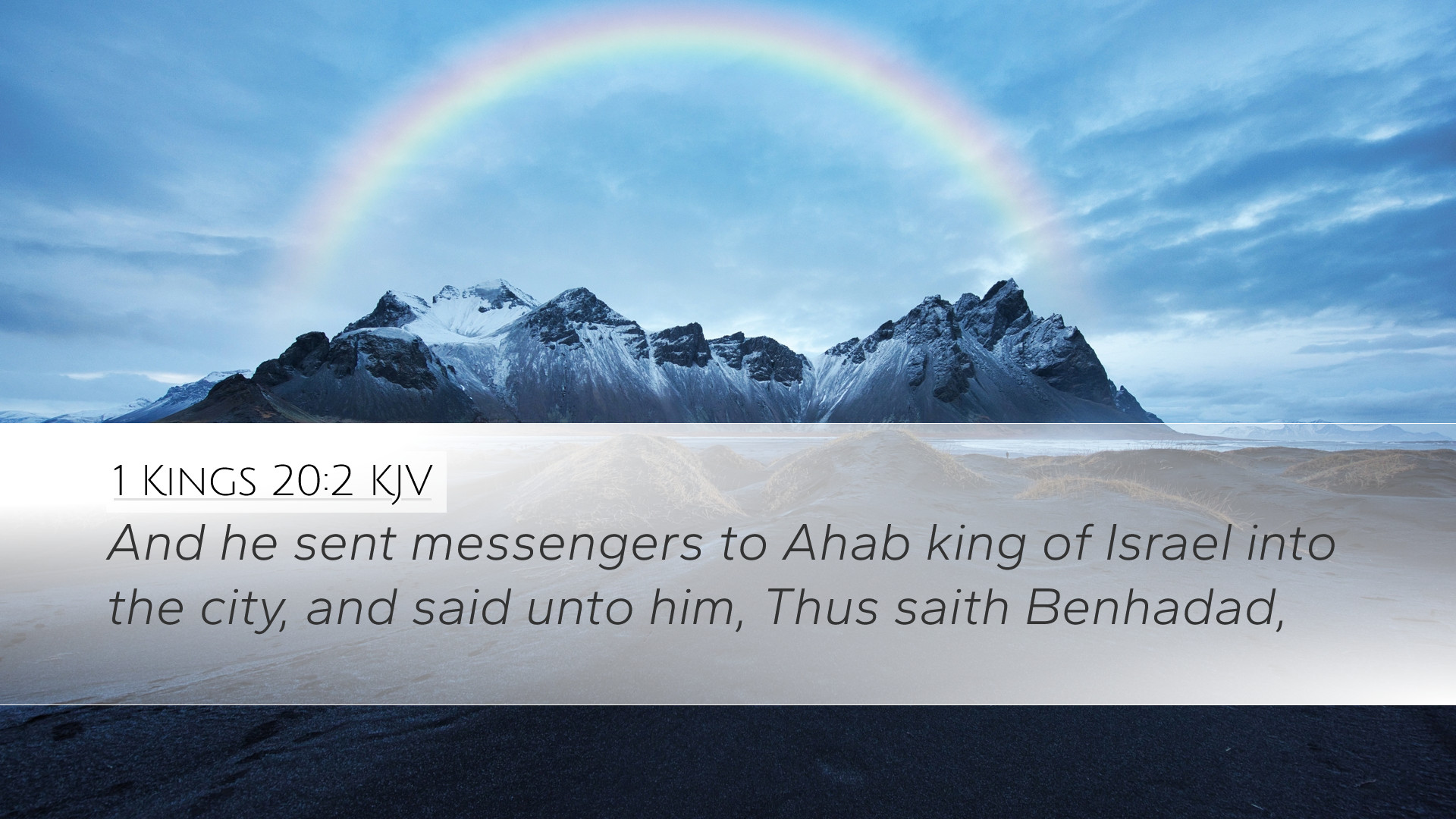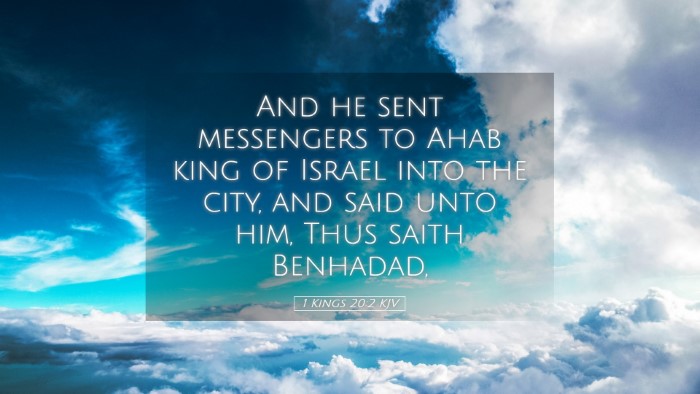Commentary on 1 Kings 20:2
Verse: "And he sent messengers to Ahab king of Israel into the city, and said unto him, Thus saith Ben-hadad." (1 Kings 20:2)
Contextual Background
This verse opens a significant chapter in the narrative of King Ahab's reign over Israel. It is a period marked by conflict and cultural tension, primarily stemming from the Assyrian and Syrian empires' encroachments. The focus now shifts to Ben-hadad, the king of Syria, who represents a threat to the nation of Israel.
Summary of Insights
The interaction between Ben-hadad and Ahab serves as both a literal and metaphorical representation of conflicts faced by God's people. A thorough analysis of this passage reveals themes of power, submission, and divine sovereignty. Each of the following commentaries offer unique interpretations and understandings of the biblical text:
Matthew Henry's Commentary
Henry emphasizes the sovereignty of God in the affairs of nations. He notes that Ben-hadad's ambitions are not simply a result of personal desire but are part of a greater divine narrative. The fact that he sends messengers rather than making a direct approach indicates his view of Ahab's position. This move signifies both intimidation and an assessment of Ahab's might—or lack thereof.
- Power Dynamics: Henry points out the psychological warfare in Ben-hadad's approach, illustrating how power plays a crucial role in governance and relationships.
- The Role of Messengers: The use of messengers is significant. It shows how communication can serve as a tool for manipulation and control, reflecting the political realities of the time.
Albert Barnes' Commentary
Barnes brings to light the historical context of this passage. He discusses the historical animosities between Israel and Syria, suggesting that Ben-hadad's proposal was a calculated political move. Ahab's response would determine not only his own fate but also that of the nation of Israel.
- Importance of Response: Barnes stresses the importance of Ahab's response to the demands put forth by Ben-hadad. He warns that the decisions made in the heat of conflict can have long-lasting consequences.
- Moral Implications: The author also notes the moral implications of Ahab's possible decisions, linking it to the broader theme of fidelity to God amidst political turmoil.
Adam Clarke's Commentary
Clarke provides a deep dive into the character of both kings involved. He delves into Ahab's moral failings and questions whether he would rise to the occasion as a leader. Clarke suggests that this moment is crucial for Ahab’s character development.
- Character Analysis: Clarke analyzes how Ahab’s past behaviors might influence his current decision-making process, drawing parallels between human behavior and divine expectations.
- Divine Judgment: He proposes that this scenario is not merely about political rivalry but serves as a mechanism for divine judgment on Ahab's idolatry and disobedience.
Theological Reflections
This verse and its surrounding narrative allow for multiple theological reflections:
- Divine Sovereignty: The passage reaffirms God's sovereignty over nations; the king's intentions and actions do not go unnoticed.
- Human Agency: While God's sovereign plan is in motion, human choices remain essential. Ahab's decision in response to Ben-hadad will affect the trajectory of Israel.
- Moral Responsibility: Leaders are held to a higher standard, and the moral fabric of a nation often reflects the character of its leaders.
Conclusion
The implications of 1 Kings 20:2 extend beyond the historical account of Ahab and Ben-hadad; they encapsulate the struggles between faithfulness and fear, divine authority and human arrogance. For pastors, students, theologians, and Bible scholars, this passage serves as a critical reminder of the intertwining of leadership, morality, and divine guidance in the complexities of life and governance.


